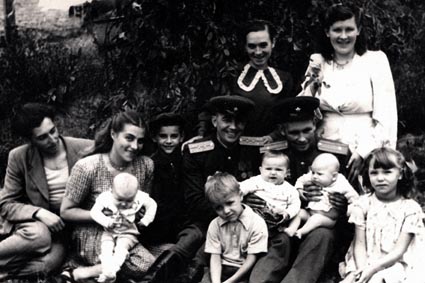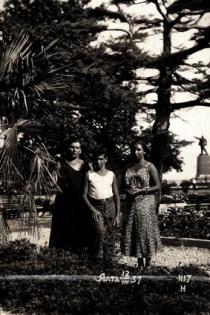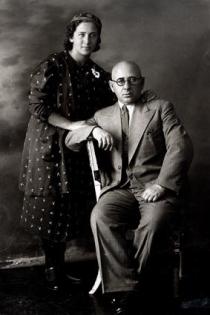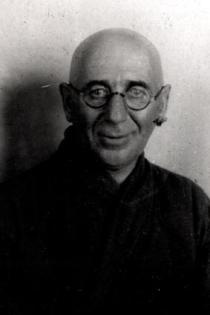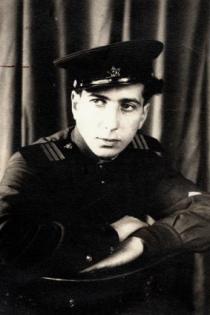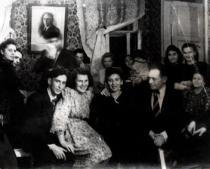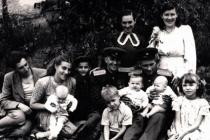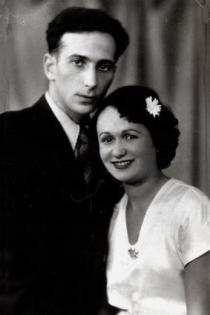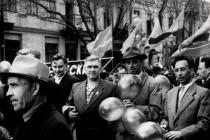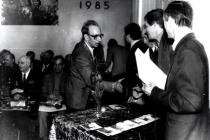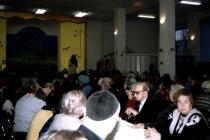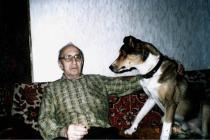This photo was taken in 1947 in the suburb of Furstenberg (Germany).
Here I’ll tell you about my life in Germany after the end of the war.
After the end of the war I was appointed a technical supervisor of buildings in Furstenberg. The supervising person was responsible for boiler-houses, water supply, and sewerage system. Certainly not all buildings of the city were my responsibility (only a part of them).
My work was troublesome. I knew German a little and it helped me to communicate with my German subordinates (stokers, carpenters, yard keepers).
Here I'd like to tell you some words about Furstenberg. It was a little cozy German town situated half-way between Berlin and the Baltic Sea. There is the Havel River, and a lot of channels.
Soon we got to know that Ravensbruck, a concentration camp was situated near the town. It was one of the most terrible camps, mainly for women. About 130,000 women and several hundreds of children were imprisoned there. 93,000 prisoners were killed.
On April 30, 1945 the survived prisoners were liberated by the Soviet Army. Several kilometers from Furstenberg there is a little town Luhen. It was the last location of Himmler's headquarters.
[Heinrich Himmler (1900-1945) was a German high-ranking Nazi politician. He headed the SS. By the end of the war he was the second-most powerful man in Nazi Germany. As Reichsfuehrer-SS he oversaw all police and security forces including the Gestapo.]
Many years later I got to know that in Ravensbruck well-known Mother Maria was executed. [Nun Maria Skobtseva (known as Mother Maria, 1891-1945), a Russian poetess was one of the important figures of French Resistance.]
I remember that her life history impressed me greatly. I found out that in Paris Mother Maria basically procured forged documents for Jews, helped them to escape from the occupied zone of France, sheltered them and hid children whose parents had been already arrested.
And on March 31 the prisoner #19263 (Mother Maria) was executed in the gas chamber of the Ravensbruck concentration camp. She did not last 2 months till the day of liberation.
On official business I frequently went to Berlin. Each time I went to the cinema there. I saw The Girl of My Dream. [Die Frau meiner Traume, German film. George Yakobi was its producer.] In the Soviet Union they showed it with the following subtitle: 'This film was taken as a trophy in war.']
The film impressed me deeply. Till now I dream of buying a DVD with the film, but I did not manage. I guess the point was in our hunger for something beautiful, bright ('a piece of cake') after all horrors of the war.
My life in Germany was fine. Around me there were many people, including our officers (many of them were already married and had got children). But I longed to go home.
In 1947 I decided to get demobilized, but the commanders persuaded me to serve a year more (additional service). I was busy with the same task, I was already used to it, therefore I had plenty of spare time. I decided to prepare for a college entrance exams. Of course, I wanted to study in the USSR.
